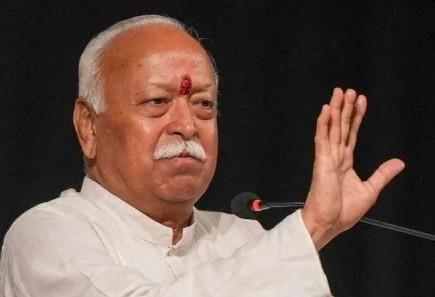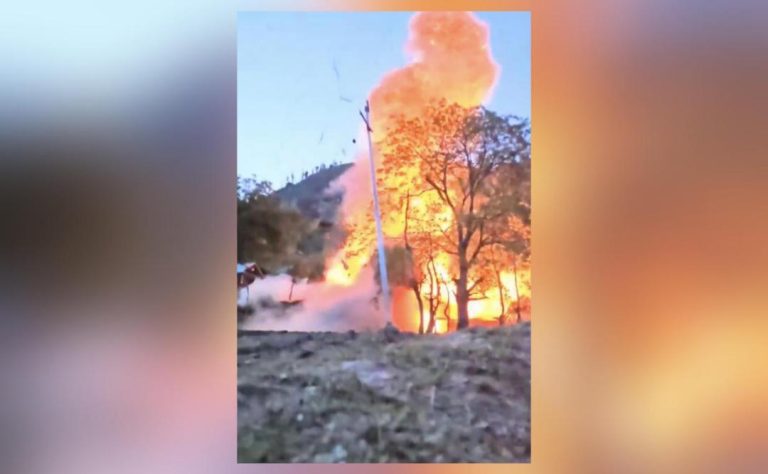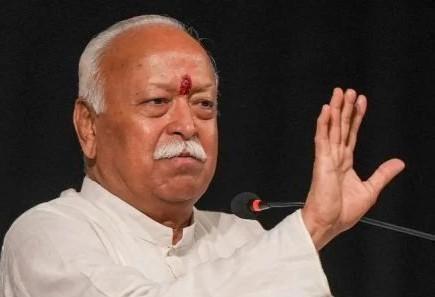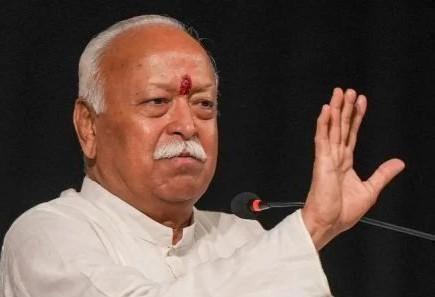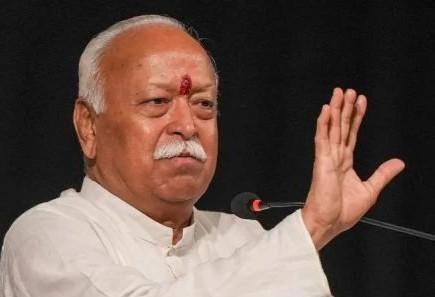
If Someone Turns to Evil, We’ll Teach a Lesson: Bhagwat on J&K Attack
The recent terror attack in Pahalgam, Jammu and Kashmir, has left the entire nation shaken. In the wake of this tragic incident, RSS chief Mohan Bhagwat has made a significant statement, sending a strong message to those who harbor evil intentions. In a televised address, Bhagwat emphasized that non-violence is indeed India’s religion, but so is teaching a lesson to “oppressors and hooligans”.
The statement has sparked a heated debate, with many interpreting it as a warning to terrorists and extremist groups. Bhagwat’s emphasis on the importance of teaching a lesson to those who are bent on evil has raised questions about the government’s stance on tackling terrorism.
In his address, Bhagwat reiterated that India is a country that believes in non-violence and respects its neighbors. He stressed that the country never engages in aggression or disrespect towards others, but added a crucial caveat. “If someone is bent on being evil, what is the cure?” he asked.
The RSS chief’s statement is a reflection of the country’s resolve to protect its citizens and uphold its values. In the face of terrorism and extremism, it is imperative for the government to take a firm stance and ensure that those who commit such heinous crimes are held accountable.
Bhagwat’s emphasis on the king’s duty to protect his people is a reminder of the government’s primary responsibility. The Constitution of India guarantees the right to life and security to every citizen, and it is the duty of the government to ensure that this right is protected.
The recent terror attack in Pahalgam is a grim reminder of the challenges that India faces in terms of terrorism and extremism. The attack, which resulted in the loss of several lives, has sent shockwaves across the country. The government’s swift response to the incident, including the deployment of security forces and the initiation of an investigation, is a testament to its commitment to protecting its citizens.
However, the Bhagwat’s statement has also raised questions about the effectiveness of the government’s counter-terrorism strategies. Critics argue that the government’s approach to tackling terrorism has been reactive rather than proactive, and that more needs to be done to prevent such incidents from occurring in the first place.
The RSS chief’s emphasis on teaching a lesson to “oppressors and hooligans” has also sparked debate about the government’s approach to dealing with extremist groups. While some have argued that a strong hand is needed to deal with these groups, others have cautioned against using excessive force and instead advocated for a more nuanced approach that addresses the root causes of extremism.
In conclusion, Bhagwat’s statement is a reflection of the country’s commitment to protecting its citizens and upholding its values. While it is essential to take a firm stance against terrorism and extremism, it is equally important to ensure that the government’s approach is nuanced and effective.
As the country grapples with the challenges of terrorism and extremism, it is crucial to remember that non-violence is indeed India’s religion. However, it is also important to recognize that sometimes, teaching a lesson to those who are bent on evil is the only way to ensure the safety and security of our citizens.
Source: https://youtu.be/SpAKVWl5wII
